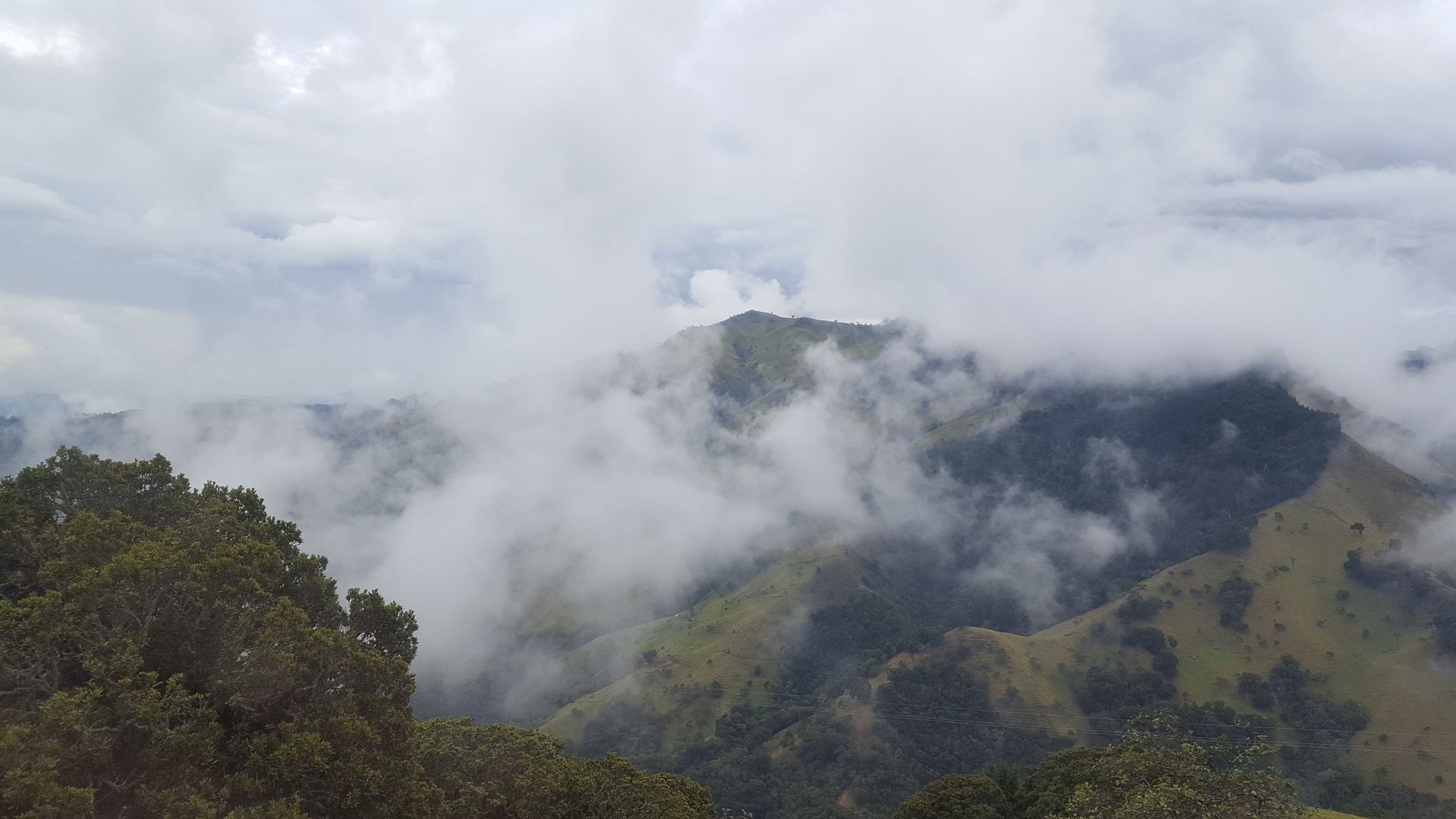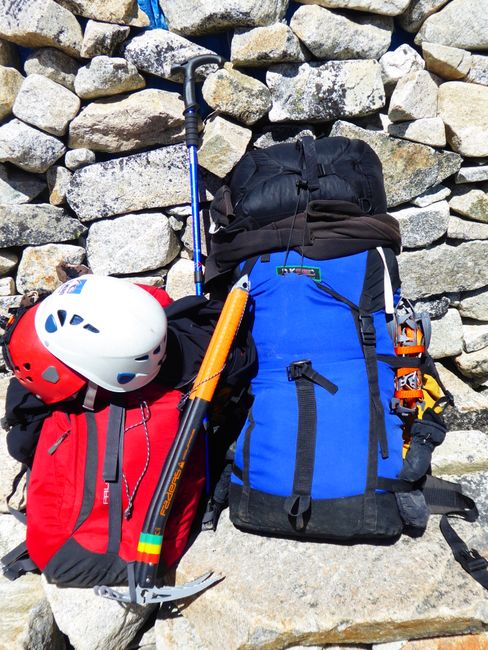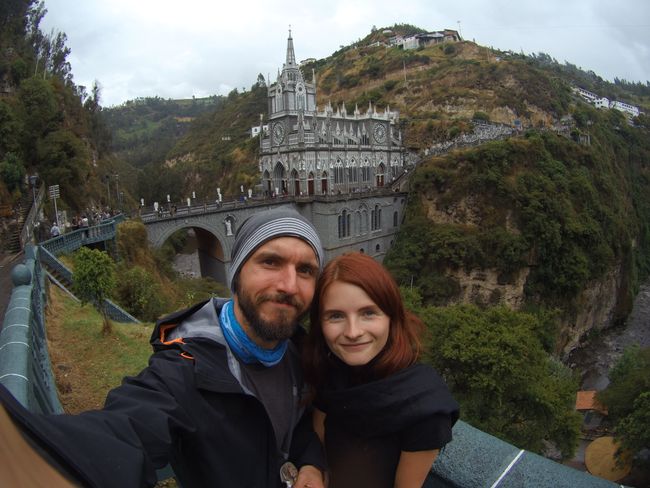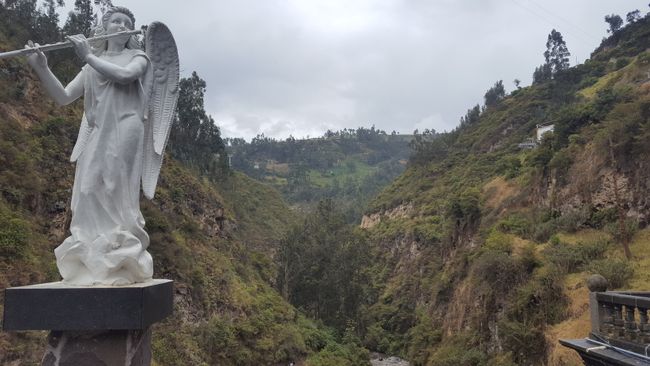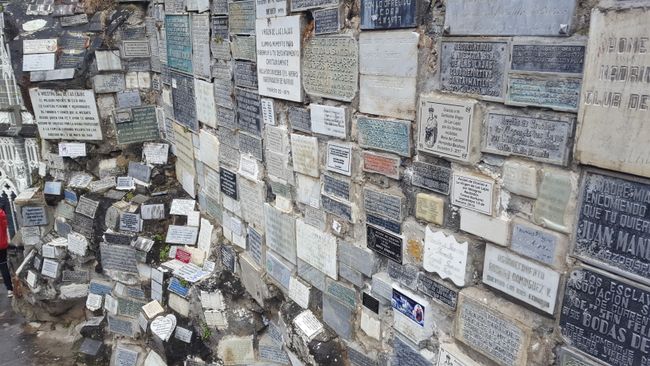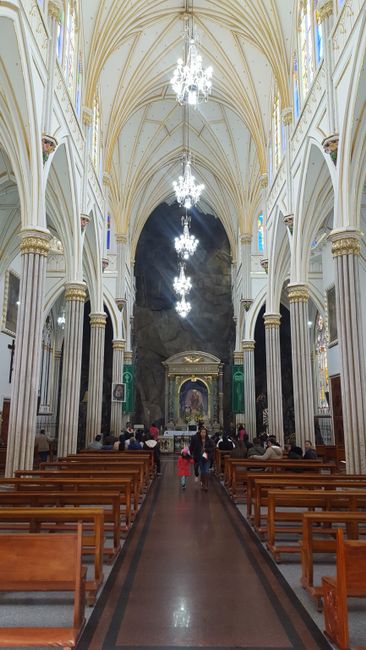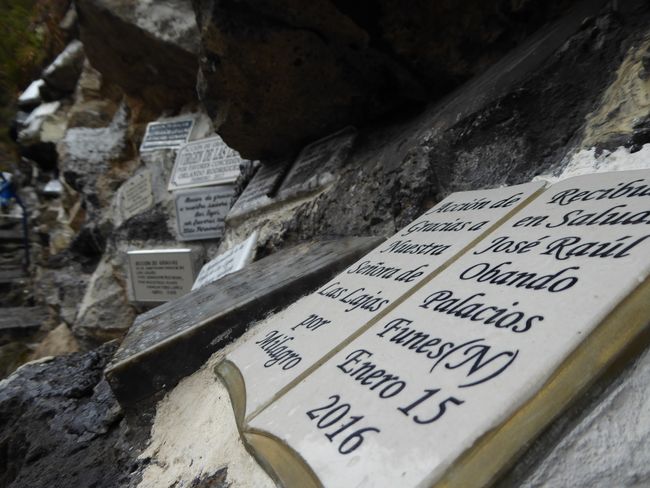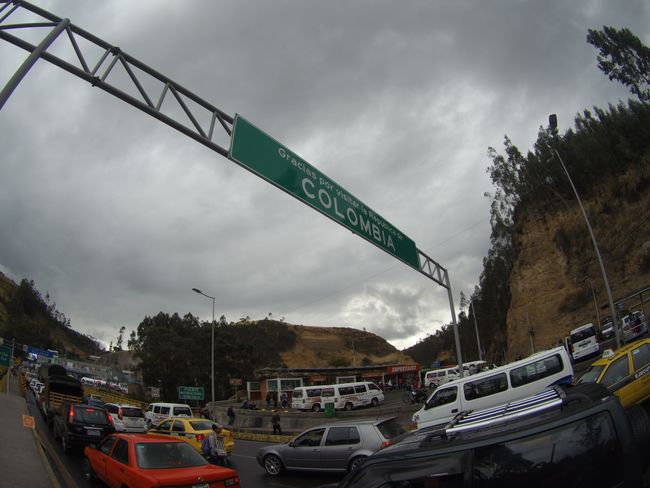Border experience - our journey to Ecuador
Publicado: 11.10.2018
Subscríbete ao Newsletter
08.10.2018
After our own cooked breakfast, we set off for the border town of Ipiales. We had originally planned to travel with the 'Engländers', but they had decided to leave early - we, on the other hand, wanted to sleep in at least a bit. Oh well...
Arriving at the bus station at half past 7, we are faced with the chaos that has become normal for us and quickly find our bus. Still empty. We quickly secure the best seats by the window and wait outside. Suddenly, someone waves from a bus window - the 'Engländers'. Their minivan still hasn't left and we already know the other couple they have with them from Popayán... it's a small world. We decide to wait for each other at the final stop in Ipiales and 'cross over' together.
The journey there was supposed to take 90 minutes, but extended to a 3-hour stop-and-go marathon with guaranteed lungfuls of dust due to the constantly approaching semitrucks, because of the expansion of the Pan-American Highway.
Reunited, we take 2 taxis for a little detour to the church of Ipiales, the 'Santuario de Las Lajas'. An appearance we have never seen before. Because this church stands on a bridge, connecting the two sides of a canyon.

On the sides, the walls are lined with countless votive tablets - thanksgiving offerings to the Virgin Mary, who allegedly saved or is supposed to save people in distress. Every centimeter of the natural stone is adorned with small and large ornaments, so that you can only imagine the shape of the rock underneath.

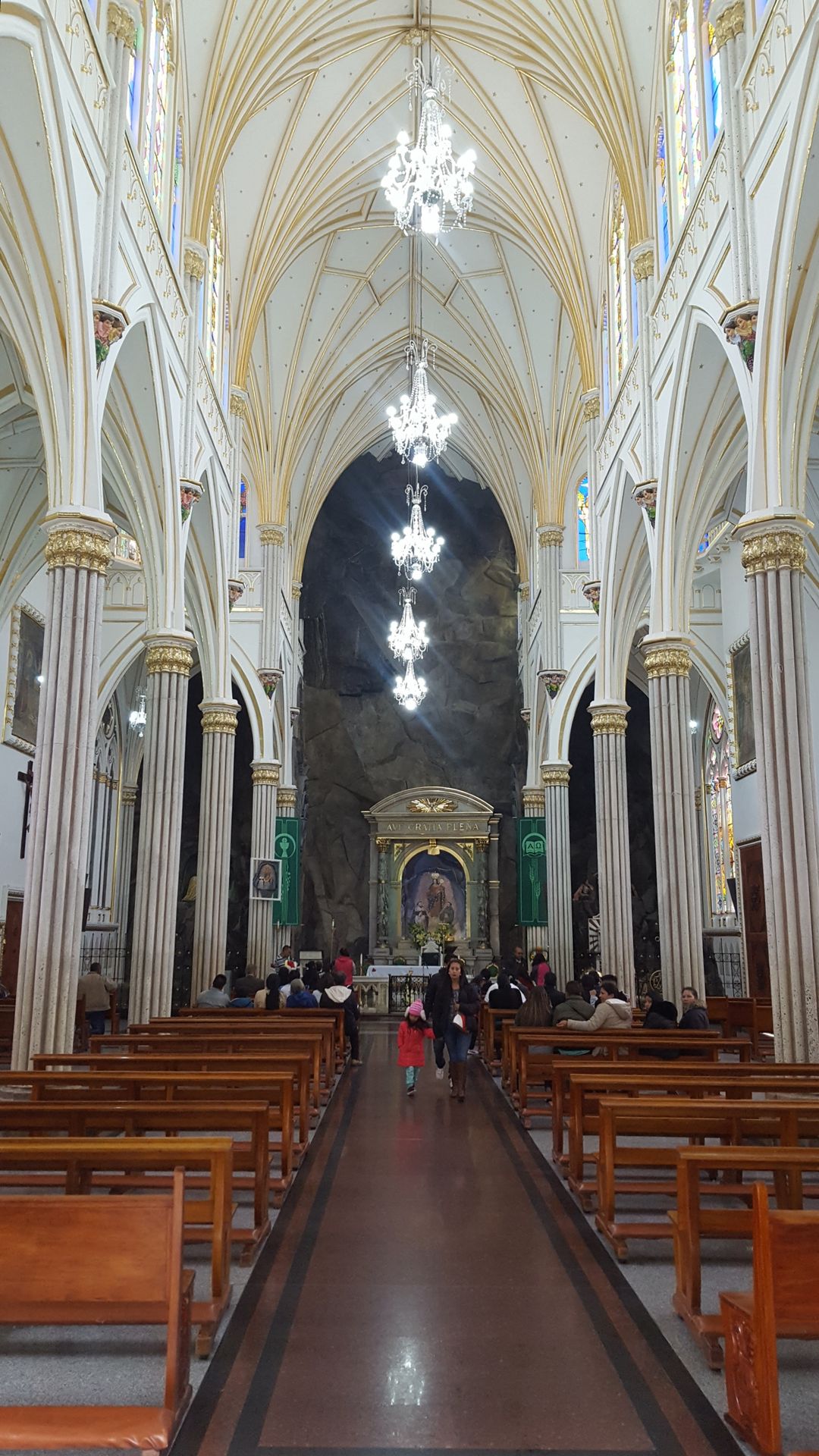

The climb back to the taxi stand is difficult for us. Loaded with great things that don't always make life easier, as we notice, we trudge up the path with difficulty, which we effortlessly hiked down before. Everyone is still in good spirits. I quickly message our hostel that we will be there shortly before 8. It is just before half past 11 in the morning. Everyone is hungry, but we decide to eat in Ecuador.
The border:
For those who aren't interested in weepy and lengthy stories, please scroll to the next picture :)
The taxis split the group again. This time, Annika rides in the other car to the border crossing. The excitement builds. A few hundred meters before the destination, the driver begins to explain what we need to do. No one understands the whole thing and we piece together what we have heard to form guesses. 'A la Derecha' he says. I look out the car window. People... just people, and huge suitcases covered with plastic tarps are practically stacked up in front of the border control. The taxi driver kicks us out and says goodbye. Now we're standing there. Me and 2, practically strangers, amidst hundreds of people. But... where is Annika? Wasn't she just in front of us? The others also say they haven't seen her for a few kilometers. The waiting begins and I start to worry. Keeping an eye out for the large yellow backpack, behind which the little redhead hides. Calling is not an option. My phone is in her bag.
Annika's view of the 10 minutes without Carsten:
When we arrive, we are completely confused because our taxi driver drops us off on the Ecuadorian side of the border. In theory, we could just grab our backpacks and start walking. But then there would probably be big problems when leaving the country - without a stamp, you would be illegal in the country. So, we get in line. Directly in front of us is the Ecuadorian immigration - less than 10 people casually waiting to have their passports scanned. However, we first need an exit stamp from Colombia. We turn around and realize that masses of people are waiting on the other side. And somewhere in this bustling crowd must be the rest of our group. Since the other taxi should have arrived minutes ago, we start searching. Three pale backpackers with huge colorful rain capes in the middle of the chaos of South American families and their households are fortunately quite easy to spot.
Reunited, we start searching. Which line is the right one now? The locals seem to find it amusing to send us back and forth in broken English or super fast Spanish. Many of them smirk at us. Eventually, we find the beginning among the other misery. Basically, it's quite simple. Everyone stands somewhere. Only the one line that goes around the building is clearly visible. It consists of Venezuelan refugees or people without passports. The rest mingles in the front spots. Pushing is the order of the day here, but is met with excited whistles from the people behind. So, it happens that we take a few steps backwards as well.
Two hours later. We're at the barrier that separates the entrance from the control. Right, we're not even inside yet. It's raining outside. People hide under umbrellas made of huge black plastic tarps or in UNICEF rescue tents where children play. Basically, every time, about every 10 minutes, a small part is allowed to enter from one of the 3-6 waiting lines and wait there. Few people are laughing here anymore. Occasionally, a man with an ID and a suit comes to the side, pushes ahead and is immediately let through. We have no idea what that's about, everyone else comments on it with loud whistles. Strangely enough, everything is still calm. No one seriously gets upset or does something stupid. We are finally allowed in.
After another hour, we are really at the counter. The staff is doing their job with the utmost care and a lot of peace. No one is in a hurry. The TV is on in the background, broadcasting the current daily soap opera. The expert from the counter next to us addresses us. 'Germany!? Hola, is Guten Tag not!?' We nod, he laughs. We get the exit stamp without any further problems. Same goes for our companions. 'Goodbye,' says the man from the neighboring counter.

The rest of the journey was so unbelievably easy that it's almost ridiculous... Cross the border into Ecuador on foot. Wait at the control with 10 other people for 5 minutes. Get the stamp. Take a taxi to the bus station (we already have dollars thanks to Mammele). Arriving at the terminal in Tulcán, we push a small, chubby service employee aside who prefers to provide tickets to her compatriots rather than us gringos. - It is now 6 p.m. and the trip to Quito is estimated to take 6 hours.
So, off to the tour bus, again with the latest blockbusters in Spanish, on multi-lane and well-maintained highways, uphill to Quito. Our friends get off earlier in Otavalo and want to meet us later. When we arrive in Quito, we take a taxi. Speeding through the city at 100 kilometers per hour. 20 minutes later, we arrive at Hostel L'Augerginn and after a 16-hour full program, crash into bed. In retrospect, our planned arrival at 8 p.m. was rather unrealistically estimated.
The first border experience comes to an end.
Subscríbete ao Newsletter
Resposta (1)
Dieter
Damke für dem ausführlichen Bericht. Ja, ja man muss alles einmal mitgemacht haben!.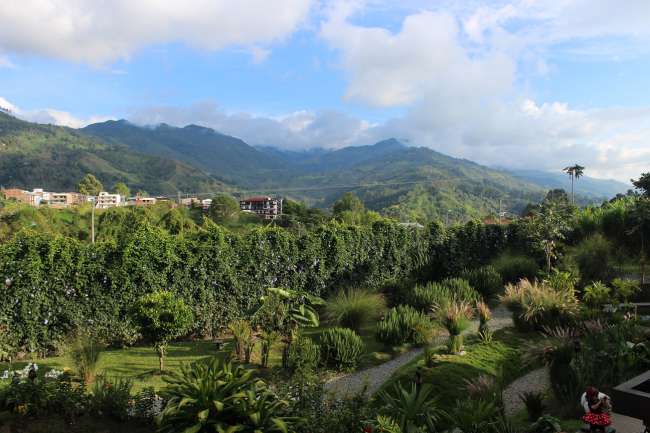
Informes de viaxes Colombia
